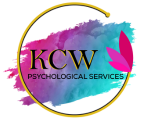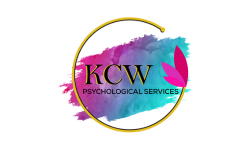
Losing someone or something dear can turn your world upside down. The waves of grief that follow are natural but often overwhelming. You might feel adrift, unsure of how to navigate these turbulent emotions. Yet, amid the darkness, there is a path toward healing. Therapy offers a compassionate space to explore your feelings, find comfort, and begin to heal.
Understanding Grief and Loss
The Emotional Impact of Loss
Grief isn’t just about feeling sad; it’s a complex mix of emotions like anger, guilt, confusion, and even relief. Each person’s experience is unique, but the pain is universally profound. You might find yourself questioning the meaning of life or struggling with everyday tasks. Recognizing these feelings is the first step toward healing.
Common Misconceptions About Grief
Many believe that grief follows a set timeline or specific stages that everyone goes through in order. However, there’s no right way to grieve, and no set schedule to follow. Society’s expectations can add pressure, making it harder to process genuine emotions. It’s okay to grieve in your own way, at your own pace.
The Healing Power of Therapy
How Therapy Provides Support
Therapy offers a safe haven to express feelings without judgment or expectation. A skilled therapist can guide you through the labyrinth of emotions, helping you unpack and understand them. This professional support can alleviate the burden, making it easier to cope and find a way forward. Through therapy, you can learn healthy coping mechanisms and strategies to manage your grief.
Identity-Affirming Approaches in Therapy
At KCW Psychological Services, we embrace a holistic, identity-affirming approach. We understand that your experiences are shaped by your unique identity, culture, and background. Our therapists honor this individuality, ensuring that your healing journey aligns with who you are. We create a therapeutic space where all parts of your identity are acknowledged and valued.

Coping Strategies for Grieving
Mindfulness and Self-Care Practices
Engaging in mindfulness can anchor you in the present moment, reducing anxiety and stress. Simple practices like deep breathing, meditation, or gentle yoga can soothe the mind and body. Prioritizing self-care by getting enough rest, eating nourishing foods, and engaging in activities you enjoy can also support your healing process.
Building a Support Network
Connecting with others who understand your pain can be incredibly healing. Whether it’s friends, family, or support groups, sharing your story eases the isolation that grief often brings. Surrounding yourself with compassionate listeners can provide comfort and reassurance that you’re not alone in your journey.
Embracing a New Beginning
Therapy doesn’t erase the loss but helps you find meaning and purpose beyond it. Many find that they grow stronger and more resilient, discovering new aspects of themselves along the way. Embracing a new beginning doesn’t mean forgetting; it means integrating the loss into your life story and moving forward with hope.
The Importance of Self-Compassion
Being Gentle with Yourself
Grieving is exhausting, both emotionally and physically. It’s important to be gentle with yourself during this time. Allow yourself to feel whatever emotions arise without judgment. Recognize that it’s okay to have good days and bad days.
Accepting Support
It can be hard to accept help, especially when we’re used to being independent. However, leaning on others doesn’t make you weak—it shows courage. Accepting support from loved ones or professionals can provide relief and foster deeper connections.
The Role of Rituals in Healing
Honoring Memories
Creating rituals to honor your loss can be therapeutic. This might include writing letters, planting a tree, or setting up a memorial. Such acts can provide a sense of closure and keep the memory alive in a positive way.
Celebrating Life
Remembering the joy and love shared can be a source of comfort. Celebrating the life of your loved one or the significance of what was lost can shift focus from pain to gratitude.

Embracing the Future
Finding Meaning
Many people find that grief leads them to re-evaluate their priorities and find new meaning in life. This process can open doors to personal growth and transformation.
Continuing Bonds
It’s possible to maintain a connection with what you’ve lost while moving forward. This concept, known as continuing bonds, allows you to integrate the loss into your life in a healthy way.
Begin Your Healing Journey
KCW’s Holistic Approach
Our team at KCW Psychological Services is dedicated to supporting you through grief. We blend evidence-based practices with empathy, tailoring our approach to your unique needs. Our holistic methods consider all aspects of your well-being—emotional, physical, and spiritual. We aim to empower you to heal in a way that feels authentic and affirming.
How to Get Started
Ready to take the first step toward healing? We’re here to walk beside you every step of the way. Contact us to book an appointment or learn more about our services. Let us provide the support and guidance you deserve during this challenging time.
Did you know that approximately 10% of bereaved individuals experience prolonged grief disorder, significantly impacting their daily life? (Source: American Psychological Association) You’re not alone, and professional support can make a profound difference.
Conclusion
Grief is a heavy burden, but you don’t have to carry it alone. Therapy offers a path to healing, helping you navigate the storm of emotions with support and understanding. Take a step toward comfort and healing today.
Your healing matters. At KCW Psychological Services, we believe in your strength to heal. Let us support you on this journey. Reach out to us to begin embracing life anew.
At KCW Psychological Services, we’re committed to providing a nurturing environment where you can explore your feelings and find peace. Contact us today to schedule a session or to learn more about how we can assist you on your path to healing.
Related Articles
Related
Unwrapping Wellness: Managing Holidays and Mental Health
The holidays are here, and so are a variety of emotions that we may experience as we navigate the holiday season. Some people are ready to jump into the holiday spirit, while others are not and only want the year to end as soon as possible. Holidays can cause feelings...
Dia de los Muertos (Day of the Dead) & Grief
Dia de los Muertos (Day of the Dead) and grief are deeply connected to one another. Dia de los Muertos is a cultural celebration of life and memory for deceased loved ones. Originated in Mexico and now being celebrated in other parts of Latin America and the United...
Destigmatizing Mental Health-Raising Awareness One Conversation at a Time
October is Mental Health Awareness Month, so what better way to advocate for mental health than to discuss what mental health is and the stigmas that surround it. Mental health talk has been popularized thanks to social media and TV shows; however, they do not always...





